
Advertorials | Aug 02,2024
Sep 21 , 2024
By Solomon A. Derso (PhD)
The African Union (AU) faces a credibility crisis due to its inadequate response towards political transitions and security challenges in six member countries. Despite the organisation's tireless attempts to facilitate such transitions, desired outcomes appear elusive. A recent dedicated session by the AU's Peace & Security Council (PSC) laid bare the growing concerns over deteriorating security in the Sahel region and protracted political transitions, writes Solomon A. Dersso (PhD), a founding director of Amani Africa, a research and think-tank on African issues. This article has been shortened from its original version posted on www.amaniafrica-et.org
For several years, the African Union (AU) has wrestled with political transitions in six of its member states — Burkina Faso, Gabon, Guinea, Mali, Niger, and Sudan — following military coups and, in Sudan's case, a descent into civil war. Despite the AU's efforts, its policy actions have largely failed to produce the desired outcomes, raising questions about its relevance and credibility in managing such crises.
In a recent session dedicated to updating the political transitions in these countries, the AU's Peace & Security Council (PSC) stressed several concerns. Chief among them is the deteriorating security situation in the Sahel region, fueled by terrorist and insurgent groups and leading to dire humanitarian conditions. Yet, the PSC's response did not extend beyond expressions of concern, reflecting a pattern of meetings that yield little substantive action.

The AU Commission Chairperson, Moussa M. Faki, acknowledged the lack of meaningful intervention during an address to the AU Assembly in February this year. He posed rhetorical questions that spotlighted the gravity of the situation and the AU's inadequate response. With the narrow focus of its policy engagements on coups and the consequences of the scourge of terrorism, the organisation also faces criticism for failing the people of the Sahel.
The PSC urged the AU Commission, the international community, and capable member states to provide humanitarian assistance. Yet, it envisioned no collective action to address the terrorist insurgency that precipitated these dire humanitarian consequences. Nor did it define the holistic solutions it said are needed to address the conditions that facilitated terrorism, which created the opportunity for unconstitutional government changes.
Another pressing issue is the duration of the transitions in these countries.
Initially, 2024 was set as the year for Burkina Faso, Mali, and Guinea to conduct elections to end their transition periods. However, dialogues and consultations in these countries have extended the transition timelines, delaying elections.
In the case of Niger, the PSC tasked the AU Commission to swiftly deploy a high-level mediation mission to engage with transitional authorities and establish a transition roadmap aligned with national and regional dispositions.
Concerning Mali, it requested the Commission to urgently organise a fact-finding mission to discuss the conclusions of the inter-Malian dialogue and collaborate with transitional authorities to identify opportunities for cooperation and implementation. For Gabon, the PSC noted the setting of the transition duration for two years, with intentions to hold elections in August 2025. It expressed rejection of any further extension and renewed its call for a speedy return to constitutional order within the prescribed timeframe.
The PSC also raised concerns about shrinking political and civic spaces in some transitioning countries, particularly bans on political parties, associations, civil society organisations, and repression of media activities. It encouraged authorities in Burkina Faso to promote conditions conducive to political and democratic discourse, encouraging inclusivity. In Guinea, it urged authorities to pursue inclusive dialogue with all political, socio-economic, and civil society stakeholders. For Mali, it called on transitional authorities to reconsider the suspension of political parties and activities of political associations.
A major issue at stake is the fact that PSC’s initiatives, whether in terms of engagement around implementation of transition roadmaps and timelines or civic space, are either ignored or non-implemented.
The effectiveness of the AU's role in facilitating reforms for successful transitions and restoration of constitutional order is another area of concern. The AU has neither deployed effective mechanisms nor ensured the functionality of existing ones. Acknowledging this deficiency, the PSC reiterated its request for the AU Commission to appoint a High-Level Facilitator, preferably a current or former Head of State, to engage with transitional authorities. It also noted the leadership vacuum within the African Union Mission for Mali & the Sahel (MISAHEL), requesting the Chairperson of the AU Commission to nominate a High Representative, a crucial interface for collective oversight between the Commission, Council, and transitioning countries.
This position has been vacant since Maman Sambo Sidikou's departure in August 2023.
Compounding these challenges is the threat of a breakdown of the regional order in West Africa. Burkina Faso, Mali, and Niger have withdrawn from the Economic Community of West African States (ECOWAS) and formed their own grouping, the Alliance of Sahelian States, recently upgraded into a confederation during a summit in Niamey, Niger, in early July 2024.

The PSC expressed concern and encouraged these countries to reconsider their decision, calling for the resumption of dialogue and mediation between ECOWAS and the three countries. However, such generic appeals, lacking a designated mechanism for dialogue and mediation, suggest a failure to grasp the gravity of the potential regional order breakdown fully.
A vital issue undermining the AU's credibility is the potential for individuals involved in unconstitutional government changes to become candidates in subsequent elections. The PSC reiterated its view on the ineligibility of transitional authority members to participate in elections, marking the end of transitions, aligning with the African Charter on Democracy, Elections & Governance. However, its silence on Chad's breach of this prohibition seriously weakens its position.
The AU's lack of action regarding Chad, where the leader of the transition stood for election despite clear decisions against such actions, sets a concerning precedent. Military leaders in other transitioning countries have perceived this inaction as a green light. Mali and Burkina Faso have already signalled intentions to follow Chad's example. In May, Mali's national dialogue concluded with an extension of the transition period by three more years, allowing the junta leader, Assimi Goita, to stand in the eventual election. Similarly, Burkina Faso adopted a new charter extending the transition period for five years, permitting Ibrahim Traore, another junta leader, to run for election at its conclusion.
As the PSC concluded its mission to Gabon this month, whether it leveraged its engagement with Gabon's transitional leadership to dissuade the junta leader from running in the upcoming election is indicative of whether the PSC still upholds AU’s norm banning eligibility of coup makers for elections.
The cumulative analysis of the concerns raised in the PSC session and the nature of challenges facing the continental organization show the urgent need for the AU to rethink its approach. To regain its standing and fulfil its mandate, the AU should move beyond performative expressions of concern and implement concrete actions that address the symptoms and root causes of instability in its member states.
Absent such changes, the AU risks further erosion of its relevance and credibility in these critical situations.
PUBLISHED ON
Sep 21, 2024 [ VOL
25 , NO
1273]


Advertorials | Aug 02,2024

My Opinion | Jul 13,2024

Radar | Sep 19,2020

Commentaries | Aug 26,2023

Viewpoints | Feb 11,2023
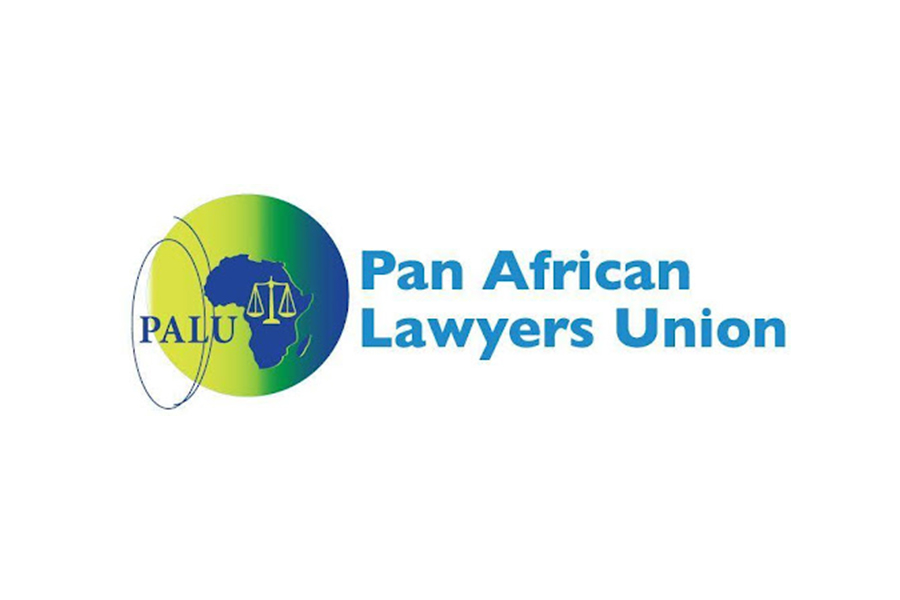
Radar | Sep 14,2024

Radar | Nov 12,2022

Viewpoints | Dec 07,2019

Radar | Mar 18,2023

Viewpoints | Apr 20,2019

My Opinion | 114354 Views | Aug 14,2021

My Opinion | 110470 Views | Aug 21,2021

My Opinion | 109439 Views | Sep 10,2021

My Opinion | 107264 Views | Aug 07,2021
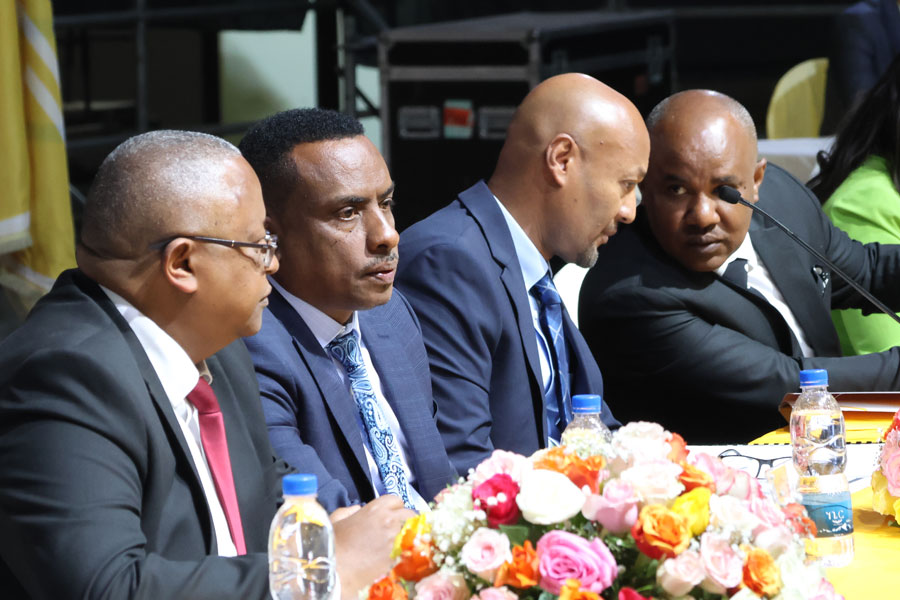
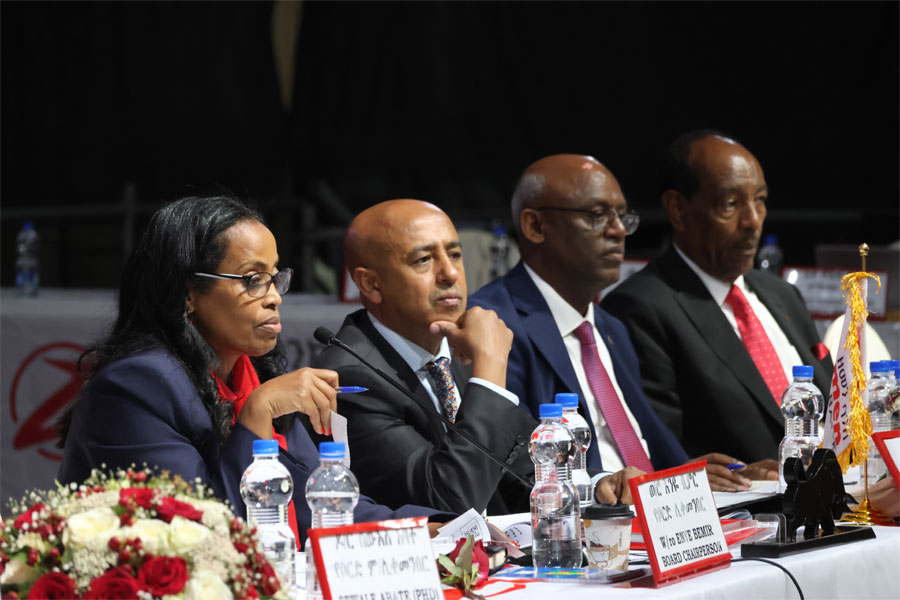
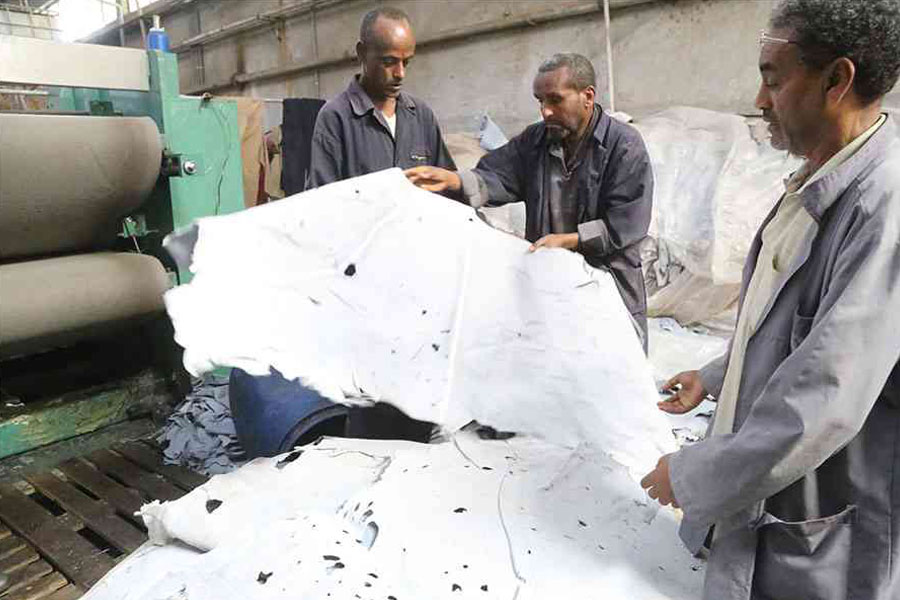


Aug 18 , 2024 . By AKSAH ITALO
Although predictable Yonas Zerihun's job in the ride-hailing service is not immune to...

Jul 13 , 2024 . By AKSAH ITALO
Investors who rely on tractors, trucks, and field vehicles for commuting, transportin...

Jul 13 , 2024 . By MUNIR SHEMSU
The cracks in Ethiopia's higher education system were laid bare during a synthesis re...

Jul 13 , 2024 . By AKSAH ITALO
Construction authorities have unveiled a price adjustment implementation manual for s...
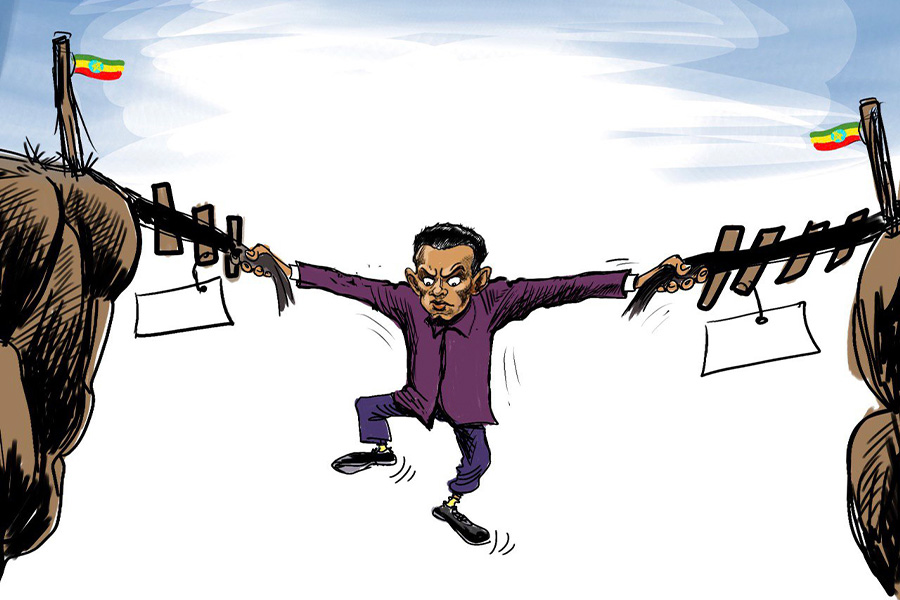
Nov 9 , 2024
Ethiopia's foreign exchange debacle resembles a tangled web of contradictions and con...

Nov 2 , 2024
Addis Abeba, fondly dubbed a 'New Flower,' is wilting under the weight of unchecked u...
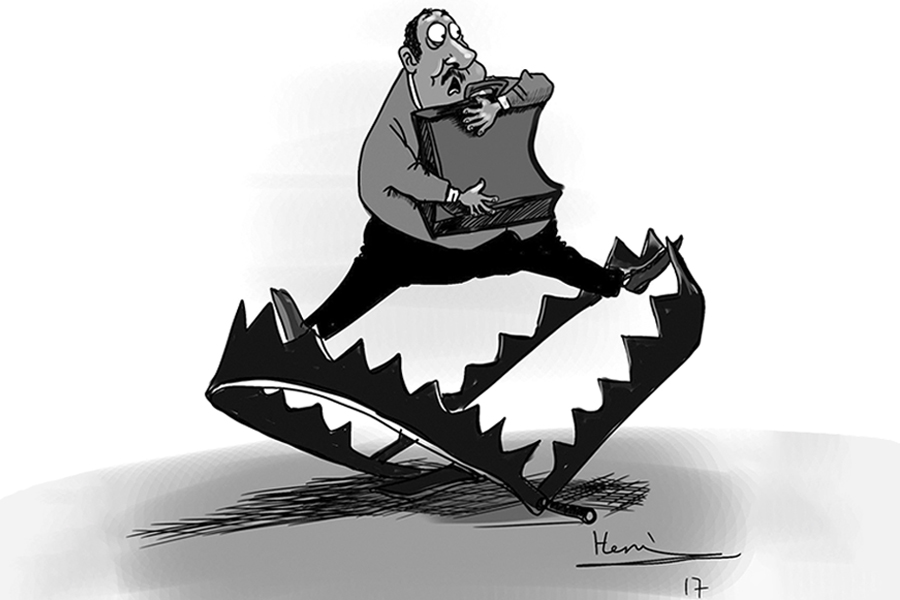
Oct 26 , 2024
When flames devoured parts of Mercato, residents watched helplessly as decades of toi...

Oct 20 , 2024
Central Bank authorities have unveiled no less than six new guidelines to fine-tune t...

Nov 9 , 2024
Frequent power outages disrupt daily life and hinder economic activities across the c...

Nov 10 , 2024 . By BAKSA WORKU
A pilot program to establish traceability for hides and skins throughout the leather...

Nov 10 , 2024 . By AKSAH ITALO
Federal authorities have tightened duty-free import rules for steel, imposing a stric...
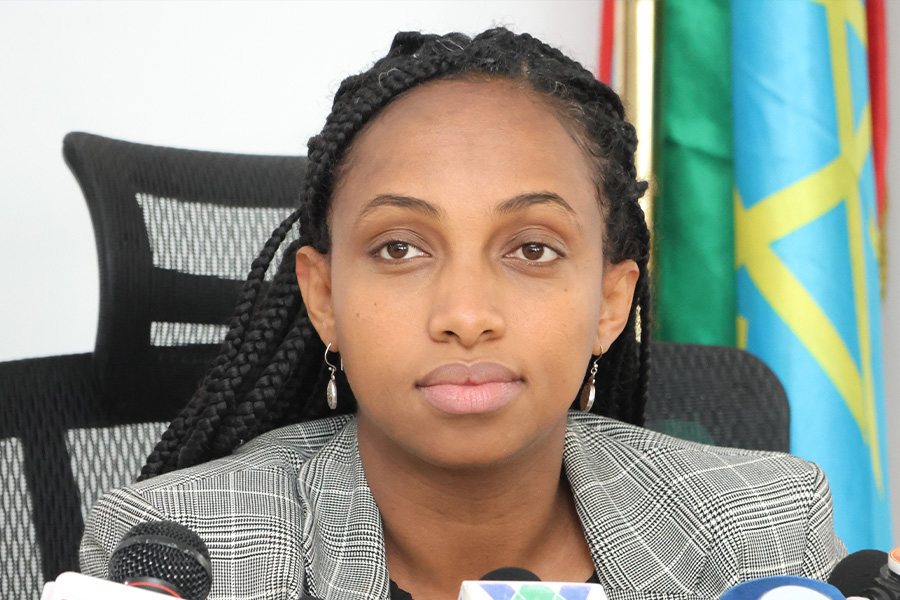
Nov 9 , 2024 . By AKSAH ITALO
Parliament is wrestling with a contentious bill that would grant the Ministry of Just...